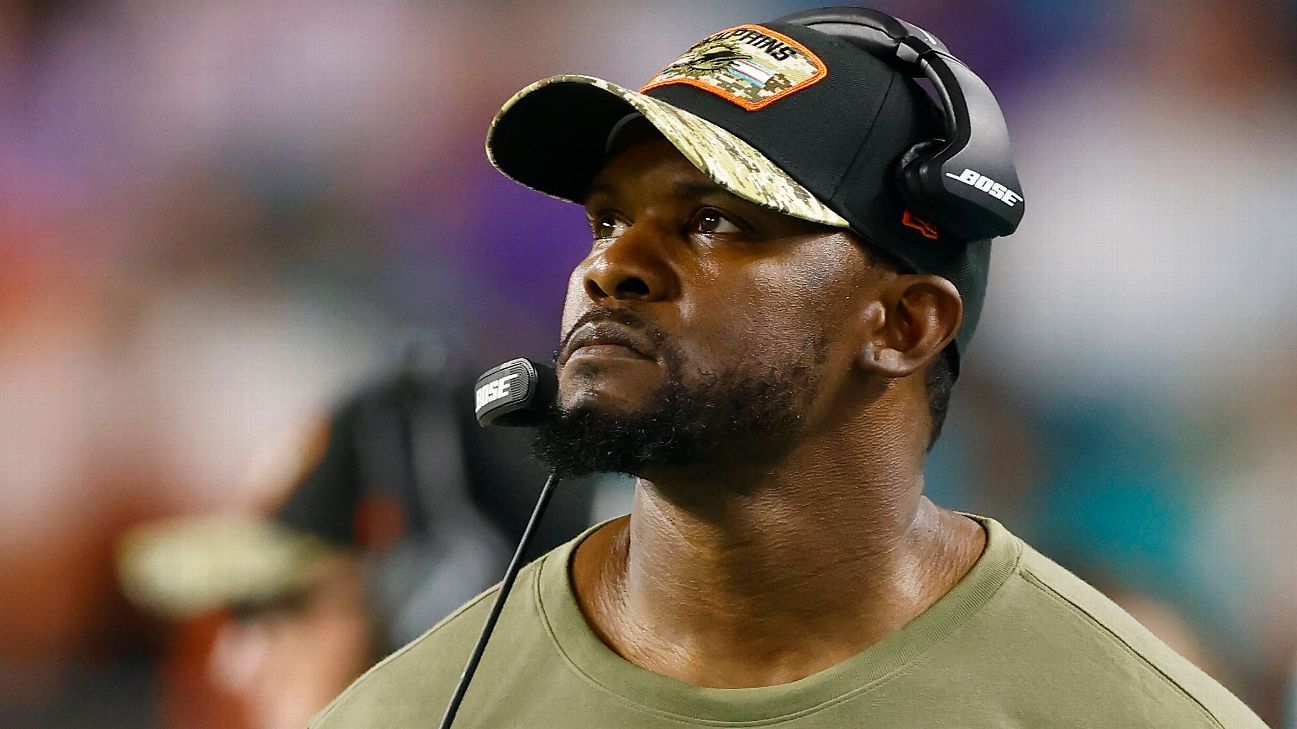NEW YORK — A judge on Thursday quickened the time it will take to rule whether NFL commissioner Roger Goodell gets to decide the merits of racial discrimination claims made by Black coaches against the league and its teams, saying that it appears an effort to gather more evidence is a try at “an impermissible fishing expedition.”
U.S. District Judge Valerie Caproni said in a written ruling that lawyers for coaches Brian Flores, Steve Wilks and Ray Horton cannot gather additional evidence from defendants to support their arguments that the lawsuit in Manhattan federal court should remain in court rather than be sent to arbitration.
“Because Plaintiffs should know whether they entered into any other contracts or agreements that would affect their agreement to arbitrate, the Court can only assume that they are attempting to embark on an impermissible fishing expedition,” Caproni wrote.
Still, the judge said lawyers for the coaches may well be able to argue that the proposed arbitrator is so biased against them that the motion to compel arbitration should not be granted, but they do not need discovery to do so.
Flores, who was fired in January as head coach of the Miami Dolphins and is now an assistant coach with the Pittsburgh Steelers, filed the lawsuit in February, saying the league was “rife with racism” even as it publicly condemns it. The other coaches later joined the lawsuit, which sought unspecified damages and class-action status.
The NFL and six of its teams say the lawsuit they maintain is “without merit” is required to go to arbitration, where Goodell would be the arbitrator, according to the terms laid out in employment contracts and the NFL’s constitution.
Caproni wrote that courts have not historically allowed lawyers to gather evidence before deciding whether a case is required to go to arbitration.
“An agreement to arbitrate is binding on the parties unless the agreement is invalid under state contract law,” she wrote. “Thus, on a motion to compel arbitration, the Court’s analysis is generally limited to determining whether there is a valid agreement to arbitrate, whether one party has failed to perform its duties under that agreement, and whether the agreement, properly interpreted, encompasses the dispute at hand.”
Attorneys Douglas H. Wigdor and John Elefterakis, representing Flores, said in a statement that they are “confident that we will defeat the efforts of the NFL to move this matter into a private and confidential arbitration behind closed doors.”
“It is obvious that the NFL is trying to hide behind this process and avoid public scrutiny of the racial discrimination and retaliation claims we have brought. If they are confident in their defenses, they should let the process play out in court so the general public can see,” the lawyers said.
Lawyers for the NFL and its teams did not immediately respond to messages seeking comment.
